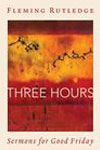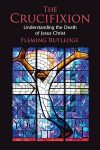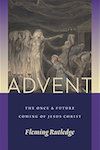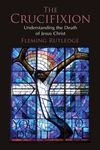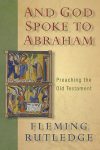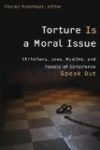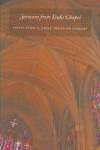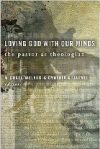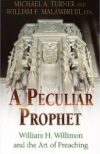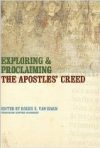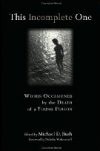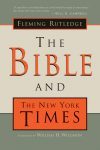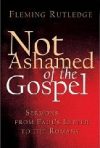You know neither the Scriptures nor the power of God.
(Matthew 22:29; Mark 12:24)
For God has consigned all men to disobedience,
that he may have mercy upon all.
(Romans 11:32)
What ails the mainline churches? The question has become almost commonplace. As this collection of essays is being assembled, the American denominations in direct descent from the Reformation are being challenged as never before in our history. Weekly if not daily, it seems, a new article declares that the mainlines are “losing ground” or are “in decline,” if not “collapsing” or “imploding” or “in free fall.” At the same time, the denominations are splitting along lines described as “liberals” vs. “conservatives,” “revisionists” vs. “traditionalists,” with acrimony to spare. Perceptive observers of the American scene emphasize the chasm between the intellectual and media elite, on the one hand, and the huge, politically influential “Christian Right” on the other. The mainlines are barely holding their traditional center. Although many individual congregations are actually thriving, the overall statistics and projections for the traditional Protestant churches are dire.
The purpose of this essay is to state the case for a resurgence of Protestant vigor, confidence and theological strength in the midst of widespread predictions of mainline demise. Never before in American history have the denominations descended from the Reformation had such an opportunity for renewal, yet we find ourselves beset with weakness as others set the agenda for us.
I am writing not as an academic, but as a pastor-theologian who spends a good deal of time visiting and interacting with congregations throughout the United States. My argument for describing our era as uniquely suited to Protestant renewal arises out of several observations. To begin with, a great deal of political and sociological commentary during the past few years indicates that most of “red” America has enthusiastically embraced the common description of itself as the most religious country in the Western world. The intellectual, urban “blue-state” elite is dismayed by this designation, but at the same time, even in those circles there remains a residual respect for educated, liberal Protestantism (the role of Catholicism, while vital, lies outside the scope of these reflections). Signals coming from the op-ed pages of The New York Times suggest that even militant secularists might welcome a stronger, reasoned voice coming from the mainline churches as a counterweight to the politically conservative Christian Right.
In twenty-first century America, there will be a continuing threat to our national values as anxiety about terrorism results in increased bellicosity and violation of civil rights. Some of the most penetrating commentary since 9/11 has come from writers who are worried about the way that Americans are being encouraged to think in terms of neat divisions between Good and Evil. This breezy, unexamined confidence about American motives cannot withstand the critique of Scripture, but the witness of the mainline Protestant denominations has been muted because these churches have become focused on internal issues and lack the confidence to speak truth to power. The mass media are interested in us only if we are fighting about sexuality; we seem to be losing our public voice.
Another defining factor since 9/11 is the tremendously heightened attention being given to the polarity between religious faith that has adapted to modernity, on the one hand and, on the other, what is increasingly being called “fundamentalism.” This is the way the conflict is being framed by many of our leading journalists and commentators. We should, I think, resist this way of describing the situation. For one thing, there is a strong case to be made (though it is often repressed for political reasons, as in the current debate about the European Constitution) that Christianity was a leading factor in making modernity possible in the first place.1 A second problem is the term “fundamentalism.” It is no longer being used in its strict sense to denote a specific movement within 20th century American Christianity. As with the term “liberal,” it may be too late to reclaim this word; it is now being used to mean “fanaticism” The trouble is that anyone who holds strongly to a biblical view and argues for it with energy and passion is in danger of being called a fanatic. This is doubly true in circles where theology and Christology have been weakened by the inroads of enormously popular and influential books questioning the New Testament canon and the creedal affirmations about Jesus. A strong offensive from clergy and lay leaders can offset this trend, but this offensive must be undertaken in a spirit suited to the times, with a high degree of tolerance for ambiguity, nuance and irony. When this happens, the culture pays attention.
There are other aspects to my argument about the demonstrable need for a renascence of Protestantism in our time. People of genuine community spirit recognize the need for thriving churches, because healthy congregations mean increased social services. Such people of good will acknowledge that they want to see the churches succeed in their traditional role of helping and rescuing. They want to see programs for lonely seniors, advocacy for the homeless, adult guidance for young people. None of this is possible if the mainlines are not strong. Moreover and quite plainly, a healthy society needs well-managed institutions. The spectacle of mainline decline is not encouraging to anyone except, perhaps, those in the nondenominational megachurches who note that attrition in the traditional denominations feeds their own mission. In addition, though on an admittedly lower level of importance, the sight of a thriving, well-maintained landmark church building on Fifth Avenue, Nassau Street or Copley Square is encouraging even to those who never go into them, whereas a dilapidated or abandoned church building creates a sense of unease and civic malaise.
Excellence in leadership will always be recognized in local communities. It is true that the respect that automatically used to be extended to the white ministers of America2 has eroded dramatically since the sixties, but in my extensive travels around the mainlines I have noted that this need not be so. Clergymen and women of stature who have genuine gifts of leadership still command respect in their towns and small cities, and not only in the South, either─in some cases even the great cities of America. Yet these are exceptions. In most cases, the role of the clergyman or woman as a community force is not what it might be. Many pastors see themselves chiefly as therapeutic figures, seeking validation from their ministrations to their own flock person by person, so that their effectiveness is evaluated by their congregations on the basis of their kindness to parishioners in time of need, rather than the power of their witness to the gospel. This trend is not new; it has been underway since the middle of the nineteenth century.3
Hand in hand with this trend is the degree to which the academic and intellectual elite have succeeded in cowing the mainline clergy. I have often reflected upon an occasion when I was having lunch with a person in this category and he asked me conspiratorially, “Do you believe in God?” Obviously he had known many pastors and priests who were evasive about such questions; he half-expected me to say, “Well, no, not really.” Many clergy, finding themselves in this atmosphere, have capitulated; my files are full of clippings about clergy who seem to take pride in their skepticism about God─the God of the Bible in particular. However, two decades of interacting with writers, academics and pundits in New York City has convinced me that, in spite of all appearances, the secular ruling classes do not entirely intend to intimidate us. I am convinced that we lose respect when we capitulate to the imagined expectations of the supposedly
enlightened, and that such people actually react more favorably to us when we remain faithful to our authentic calling than they do when we temporize. Granted, it often does not seem that way; one must be prepared for dismissive remarks, theologically ignorant pronouncements and withering assessments of the Church for its many sins. In my view, however, we have allowed ourselves to be intimidated by this for too long. In Leander Keck’s formulation, the church may repent, but it must not whimper.
This description of the situation in the mainline churches is necessarily sketchy. I do not mean to suggest that pastors should abandon hands-on works of mercy and return to their studies. Still less do I mean that the church should be content to become one community organization among many simply because the country needs “faith-based institutions.” I am only arguing that the churches need to be strong in order to mount the critique of the body politic that the biblical faith requires. When theological confidence wanes, such critiques are impossible. Church members lose their sense that, as Paul Lehmann used to say, “God is up to something in the world.” They therefore fall back on ministries that are indistinguishable from those of secular social agencies, and God is not praised through their work. Nor is the worshipping community upbuilt in such cases, for a rationale built on works alone cannot sustain the radical conviction that God justifies the ungodly, the uncooperative and the illiberal (Romans 5:6-8). Without an undergirding commitment to God’s justification of the ungodly, there can be no true fellowship with those members who cannot or do not work the works at the same level as the congregation’s leaders.
Speaking as one who has traveled extensively through the mainline churches and listened to hundreds of sermons over a number of years, I believe that the essential problem can be precisely identified in the words of Jesus to the Sadducees: “Is not this why you are wrong, that you know neither the scriptures nor the power of God?” Jesus’ point against the Sadducees is that the power of God is able to create an entirely new reality that
transcends all human categories.
The link between the two─ the Scriptures and the power of God─is the key. The power of God is manifest through his Word. This is the power that called the creation into being, it is the force that created the Church in the first place, it is the engine that drove the Reformation─yet this power today is increasingly less heard from mainline pulpits, either as thunder or as still small voice, for we have largely ceased to believe that God speaks. All the symptoms arise from that cause. That is the underlying ailment that is producing the morbid effects.
Flannery O’Connor, patron saint of those who care about language and Christian doctrine, wrote to a friend:
One of the effects of modern liberal
Protestantism has been gradually to turn religion into…therapy, to make truth vaguer and vaguer and more and more relative, to banish intellectual distinctions, to depend on feeling instead of thought, and gradually to come to believe that God has no power, that he cannot communicate with us, cannot reveal himself to us, indeed has not done
so and that religion is our own sweet invention.4
We have gradually come to believe that God has no power and has not revealed himself to us. That, I think, is exactly what has happened. Over and over again, for years upon years, I have listened to sermons which begin well but drift off before the end. The staying power is just not there. The mighty climax never takes place. Preachers begin promisingly and then the conviction and the narrative force just dribble away. In the
final analysis the problem is not rhetorical; it is theological. The subject of these sermons is not God. The current emphasis on “spirituality” puts the focus on us and our religious activities, rather than on God. The “spirituality” so much in vogue today is anthropological rather than theological.
Underlying all of this is the question of power, of dunamis. The idea that the Word of God is powerful in and of itself has been fading in the mainlines for a long time. I am reminded of a characteristic locution in the African-American churches. A church member will say, “Who is going to bring the message today?” or, “Thank you, Reverend,
for bringing the message.” We don’t say that in the mainlines. We say, “Who’s preaching today?” or “Thank you for the sermon.” The idea of a message coming with its own power seems to lie outside our set of convictions; yet the entire biblical story is founded on that reality, and without it, the essential meaning of biblical revelation
is lost. Take for example the characteristic self-introduction of Elijah the prophet:
Now Elijah the Tishbite, of Tishbe in Gilead, said to Ahab, “As the Lord the God of Israel lives, before whom I stand, there shall be neither dew nor rain these years, except by my word.” And the word of the Lord came to him. (I Kings 17:1-2)
This resounding declaration sets forth some fundamental presuppositions of
biblical faith:
How do we go about reclaiming this confidence in the God who speaks? How can seminary professors and academic theologians contribute to the revitalization of the churches? How are the preachers to make this God known to our people, especially if we are not certain ourselves? How are we to shake off our timidity before the culture and its apparent imperatives? If the trumpet gives an uncertain sound, who shall prepare herself for the battle? (I Corinthians 14:8)
The vitality of Protestantism will come in the present as it came in the past, through the power of the Word itself─the reinvigorating, recreating and revolutionary dunamis of the Holy Spirit, enlivening and interpreting the message. Let us therefore take a look at the message itself, and the way that it can easily be misread and weakened as a description of our religious selves, rather than a proclamation (kerygma)
that is itself the power of God. Here for example is Romans 10:14-17, with some words emphasized in Greek for reasons that will become clear:
But how are they to call upon him in whom they have not believed? And how are they to believe in him of whom they have never heard? And how are they to hear without a preacher [better translated as “one heralding” or “one announcing”─the root is the same as kerygma]? And how can people preach unless they are sent? As it is written, “How beautiful are the feet of the ones who announce [the root is euanggelion] good things!” But not all obeyed the gospel [euanggelion]. As Isaiah says, “Kurie, who has believed our akoē [semu’a] So then faith is from akoē, and the akoē is through [by means of─dia seems to denote efficient cause here] the word of Christ (hēmatos Christoū).
First we should note that the word meaning “preach,” or “announce,” is also the word for the gospel itself. As is so often the case with our Scriptures, nouns have the force of verbs. The principal point I wish to make, however, has to do with the Hebrew word semu’a. which, in the book of Isaiah, denotes the revelatory and performative Word of God. In the LXX, the word is translated in Greek as akoē. This linguistic link is crucial. In the passage just cited, Paul is quoting Isaiah; he uses the word akoē in place of semu’a (“Who has believed our akoē?” “Faith comes from akoē”). How is this word to be translated into English? Let us investigate.
The passage seems to be about preaching, a human activity with God as its object. “How are they to believe [in God]…without a preacher?” The preacher’s job, in this view, is to speak about God in order that people will believe; the sermon directs the attention of the hearer toward the sermon’s object, which is God. This is the way that the Romans passage would ordinarily be read by anyone who was not sufficiently
instructed in the way that Paul’s Greek works. But this is not at all what Paul intends. Verse 17 gives us the clue.
So faith comes from what is heard, and what is heard comes by the preaching [or word] of Christ. (RSV and NRSV)
Everything depends on the crucial phrase ejx ajkoh`”, how it is understood and how it is translated. If we read it without Luther and Calvin breathing down our necks, we are likely to put the emphasis on human reception of the proclamation. The tradition of the Reformation,
however, has taught us to look again. Even a lover of the King James Version such as myself must admit that many improvements were needed, and this is such a case. The KJV says “Faith cometh by hearing.” The NIV also has “faith comes by hearing.” Most people will understand this to mean that hearing is a human response to the preaching of the gospel. That’s not what the KJV translators meant to convey, since they go on in the next clause to translate that hearing comes by the Word of God; Most people who have not been instructed in the theological language of the Bible, however, will miss the point, having already misunderstand Paul to be saying that our receptive listening results in faith. Naturally this leads us to place the emphasis on the human act of hearing, thus making human beings the central agents both in the speaking and in the receiving of the evangel. This in turn will lead to preacherly exhortations to have more faith, or to work harder at having faith, and consequently to much worry about not having a sufficient amount of faith, or an acceptable quality of faith, and this leads to more and more emphasis on human activity and less and less emphasis on the creative activity of God. Thus the kerygma is lost.
In Isaiah, however, the word translated “hearing” in English clearly does not mean that in Hebrew or in Greek. It means the message itself. That is the chief insight. If we translate the word akoê as “hearing,” with the human being as the acting subject doing both the speaking and the hearing, we will be so far off Paul’s track that we will have great difficulty getting on again. Careful scrutiny (pace the KJV and NIV teams) will reveal that there really is no way to translate akoê as “hearing.” It makes no sense to say, “Lord, who has believed our hearing?”. For once, the New English Bible, of all things, has it right: “Isaiah says, ‘Lord, who has believed our message?’” and Paul goes on, “We conclude that faith is awakened by the message, and the message that awakens it [faith] comes through the word of Christ.” (The RSV and NRSV are also not far off the mark, rendering akoê as “what is heard.”)
So, to sum up this analysis of Romans 10:17, Paul is relying on the LXX translation of Isaiah’s semu’a as akoê, to convey his meaning. The power in Christian proclamation is God’s message itself. Therefore if akoê is wrongly translated as “hearing”, the emphasis is on the human choice. But if it is translated “message,” meaning God’s revelatory and performative word, then all the emphasis is transferred to God’s action, not ours. This is the message, the evangel, understood as victorious power, the power that removes human “spiritual” capacity to the margins altogether, so that God says (again from Isaiah),
“I have been found by
those who did not seek me;
I have shown myself to those who did not ask for me.”
As if to underline his meaning, Paul quotes from this paradoxical Isaianic passage in order to show that the Word of God penetrates even the will that is set against God. The emphasis is on the message (akoê, kerygma, euanggelion) as invading, victorious power. As Paul reminded the Thessalonians, “Our gospel came to you not only in word, but also in power and in the Holy Spirit and with full conviction” (I Thessalonians 1:5). When Paul speaks of full conviction, he does not mean what we would mean by such a phrase; he does not mean that he himself was fully convinced, but that the Spirit was the agent of fully convincing the Thessalonians through the akoê itself. Thus the agency remains with God throughout. This is a crucial distinction, because a major theme of the Scriptures is the purposeful action of God’s Word, not the distorted reception of that Word by flawed human beings.
Reflecting then on the difference between what is kerygmatic and what is not, we may say that the kerygma is unconditional because it does not stand back and wait to see how the human being will respond. It is an announcement that creates its own conditions. The kerygma makes something happen. It does not ask for something to happen, it does not suggest that something happen, it does not question whether something might happen if the congregation cooperates. Rather, in the very words themselves, it is already happening. Belief in this power of the Word of God is a gift; its nature is to grant confidence that the Word will accomplish that which it promises. “Grant what you command,” prayed Augustine, “and then command what you will” (Da quod jubes, et jube quod vis). “My word shall not return to me empty, but it shall accomplish that which I purpose, and prosper in the thing for which I sent it,” says the Lord (Isaiah 55:11).
How is all of this related to the future of the mainline Protestant churches? I am arguing two things:
First:
we need a renewed confidence in the Scriptures and the power of God. Another way of saying this is that we need to recover the theology of the Word of God.
I am not speaking here only of preaching, since we can all think of congregations that have gathered around great preaching only to drift away because insufficient attention was given to the equipping of the saints. The really powerful congregations today are those whose members are not only inspired, converted, convicted and empowered by the Sunday sermon
but also nurtured and stretched during the week by the call to discipleship. The balance here is quite delicate; just as we can think of examples of congregations that have a shallow commitment to a showy preacher, so also we can name congregations that are involved in countless programs of social outreach but have no theological understanding of why they are doing these things. Either way, the gospel suffers. A renascence of confidence in the gospel will give us a context in which to engage
the controversies in which we find ourselves embroiled. This leads to my next point.
Second:
We need a stronger theological basis for inclusivity than we have at present. The underlying reason that the mainline denominations are in danger of splitting is not that people disagree about homosexuality. The reason is that a strong minority of the members of these denominations are beginning to recognize─however inchoate their understanding may be─that
the theological foundation of the new teaching about sexuality is insufficient, and that the Scriptures are not being interpreted with the sort of reverent searching that believers would like to see from their leaders.
Many of these distressed church members are beginning to fall back on the labels “liberal” and “conservative.” This is unfortunate. Perhaps it is too late to reclaim the word “liberal,” but its connotations surely belong to the spirit of the Christian gospel: generous, open-handed, free, spacious, abundant, bountiful. How can “conservative” compete with that? It sounds narrow, pinched, fearful, retrograde─and for that very reason many Christians who stand on the Scriptures and the Creeds refuse the term. Theological liberalism in the mainlines today, however, is open to serious criticism because of its sentimental insufficiency.5 To give just one of many possible examples, the slogan of the Episcopal Church during the nineties was, “No outcasts.” This sounded wonderful; who could object to it? Surely this is in the spirit of Jesus who made a special point of befriending outcasts. But because the slogan lacked theological grounding and was never connected to the full biblical story
─which does after all have something to say about the universal reign of sin and judgment for all parties─it was by default associated with the specific administration of one Presiding Bishop. The “conservatives” in the denomination soon began to feel, with some justification, that they were the new outcasts. The slogan, in other words, lost its connection to the story of God and became an identifying tag for a particular kind of human project with all the prejudices that necessarily accrue to such ventures. The foundation for inclusivity was not strong enough or broad enough to include those who were, rightly or wrongly, labeled as evangelicals, conservatives or (worst) fundamentalists.
By the same token, of course, the litmus tests administered by the conservatives for full status within their assemblies have left various people feeling marginalized as well. No matter how “Christ-centered” and “Bible-believing” (to use some of the code words) those persons might be, there was no room for them if they did not toe the line on such matters as abortion, stem-cell research and homosexuality. Many sincere evangelically-minded clergy have known the pain of being declared “not sound.” Speaking generally of church life today, neither on the right nor on the left have we seen a truly radical understanding of what the gospel declares to be true about our status before God and one another. The doctrine of justification by grace through faith alone is given much lip service, but the reality on the ground seems to be justification by right doctrine, whether it be a narrowly conceived biblicism on the right or a set of politically correct dogmas on the left. These polarizations have become so predominant in mainline church life that it is difficult to point to exceptions. Many congregations claim to be largely free of conflict, but that is usually for one or two reasons: 1) those who disagree have gone elsewhere; or 2) the difficult issues─homosexuality in particular─are being studiously ignored.
Our urgent need, I would therefore argue, is a serious and intentional theological examination of the question, “On what basis can we be truly liberal?” I was much struck by the recent testimony of Andrew Young, whose liberal political credentials are beyond question. In a wide-ranging interview he spoke of his concerns for the world we are bequeathing to his grandchildren, “the confusion we’re creating in the global order.” He is described as the most popular Democrat in the state of Georgia, black or white, but even so, he is intensely disliked by Georgia Republicans, and remains the butt of hateful racist jokes. Yet he said this about his days in Congress: “Almost everything I tried to do in Congress I was able to do because I worked both sides of the aisle. Conservatives were always in the prayer groups, and I attended. Every Wednesday morning, we had Bible study. Almost everybody there was an extreme conservative. But they saw me as sincere, and I could also share their religious conviction─but give it a little different twist.”6
We should not romanticize or idealize African-American Christians, but as the spirit of the black church has led the way for us before, it might do so again. Andrew Young’s model is one that the liberal mainlines might ponder. In the black church there is a tradition of forgiveness and tolerance, a faith in the power of redemption for every person, which perseveres in spite of endless slights and hurts. Might we not see a hint of a new type of genuine liberalism here? The model is based in a sincere love of Scripture and a trust in its power to create a new reality, the power of the God who “makes a way out of no way” in a formulation made famous by Rev. Young and his colleagues. This is the God who “raises the dead and calls into existence the things that do not exist” (Romans 4:17).
There are times when Christians’ varying stances on such subjects as (for instance) homosexuality, war, abortion and capital punishment seem to render fellowship across the left-right divide impossible. Each of us has our flash points; there are issues which we care about so fundamentally that we cannot imagine achieving any sort of rapprochement with those who disagree. There is such a thing as a status confessionis and there are times when Christians must divide. It is instructive to note, however, that there have been only a few such times in our history. The Confessing Church of the Nazi era was the paradigm. In America, the failure of many of the white churches to support the civil rights movement made another such witness necessary. Perhaps it trivializes the apocalyptic (revelatory) nature of those apocalyptic times to call this or that movement in the churches today by the name of Confessing Church. Dietrich Bonhoeffer looks more important today than he ever has, not so much as a systematic theologian but as a model for what a radical Christian looks like. How would he fit into the Church today? He can be (and is) claimed by evangelicals and liberals alike, but this is owing more to his status as a martyr than to the challenging nature of his late writings which, when read without hagiographic backlighting, have the capacity to unnerve everyone. The exact meaning of his call for a “religionless Christianity” will always be open to debate, since he did not live to put it into context, but the depth of his trust in the Scriptures and the power of God cannot be doubted, and his radical questioning arises out of a faith grounded in just that way, while at the same time proving itself utterly fearless about anything that modernity might throw in its direction.
The lay Episcopal theologian William Stringfellow was another figure who does not easily fit into either camp. The body of work that he left us suffers from sloppy editing and unchecked polemical ire, but its value consists in its radical challenge to the principalities and powers precisely on Biblical grounds. He knew both the Scriptures and the power of God. That is what continues to make him unusual as a figure who is cherished by the liberal wing in the church. His vision of what a Christian should look like was (and is) enthusiastically embraced by the left, but his theological stance was actually more encompassing than many realize. Stringfellow’s theological project was able to accommodate the likelihood that God was working not only through the bien-pensant Left but also through the disreputable Right. This was even more true of another radical figure who is still with us, Will Campbell. It was Campbell who, from his post on the frontier of the darkest hours of the civil rights movement, shockingly reminded us that under certain circumstances, blacks would be perfectly capable of marching whites into death camps. Like many other theologians who have drawn deeply from the well of the Reformation, Stringfellow and Campbell both refuse to declare anyone innocent, either on the Right or on the Left. By the standards of Romans 9-11, these two are as thoroughly Pauline as anyone in the Church today in their conviction that the power of God’s Word will overturn all our conventional assumptions and cause something completely new to come into being─something that will bring surprise and shock to absolutely everyone across the spectrum, as in Matthew 25 where both “sheep” and “goats” are confronted with a message that they clearly did not expect. A key text here is Romans 11:32: “For God has consigned all men to disobedience, that he may have mercy upon all.”
Therefore the difference that really counts between liberals and conservatives in the Church is not specific issues such as homosexuality or even peace and justice, because individual Christians may disagree in good faith about exactly how peace and justice are to be achieved. Nor, I think, is it even the problem of “fundamentalism.” My sense is that the question that really counts is whether or not there is a living God. I do not say “loving” God, because the mainlines are not failing to preach a loving God. The issue that divides us is not the centrality of agape in the proclamation of the gospel; it would be difficult to disagree about that. The question, rather, is whether God and his Word are “living and active.” The issue is whether God is ”up to something in the world.”
To repeat, Flannery O’Connor’s assessment is correct. “We have “come to believe that God has no power, that he cannot communicate with us, cannot reveal himself to us, indeed has not done so and that religion is our own sweet invention.” If this is true, the question now arises, what is the antidote for this condition we find ourselves in? The antidote will begin with a recognition that we are suffering from a famine of the Word of God (Amos 8:11), which speaks into existence that which does not exist. This is the creation ex nihilo. Where there is no faith in the power of God, the power of God creates faith. Where there is acrimony and dissension, exposure to the living Word means a new vision where even our most important religious distinctions are abolished─circumcision is nothing, and uncircumcision is nothing, as Paul says three different times, (I Corinthians 7:19, Galatians 5:6, 6:15). Therefore the human
activity of reading and expounding the power-filled Word of God is the antidote.
In saying this, I am in no sense proposing a retreat from active involvement in social problems. On the contrary. Doing real Christian theology puts us in the forefront of all the struggles of our time, because that is where our God (theos) is at work. He is up to something. Our task is to discern, through study of the scriptures in the context of the worshipping community, what God is doing in the world so that we can move where he is moving. The events of the twentieth century in America─the civil rights movement, the anti-Vietnam war protests, the nuclear disarmament and environmental movements─were catalysts for the mainline churches, who were significantly represented on the front lines in spite of our inner divisions. This background should have equipped us for engagement with the issues of our present time, but instead, we seem to be in retreat. My proposal is that the single most powerful factor in overcoming the liberal-conservative theological divide is a renewal of confident preaching and teaching of historic, Nicene, Biblical faith.
My experience is that when Christians of varying perspectives are willing to study Scripture together in a seriously committed way, remarkable things happen. This is difficult to accomplish in the present atmosphere of the mainlines. William Stringfellow tells a story both amusing and alarming:
I recall, a few years ago, serving on a commission of the Episcopal Church charged with articulating the scope of the total ministry of the Church in modern society. The commission [included] a few laity and the rest [were] professional theologians, ecclesiastical authorities and clergy…Toward the end of [the first} meeting, some of those present proposed that it might be an edifying discipline for the group, in its future sessions, to undertake some concentrated study of the Bible. It was suggested that constant recourse to the Bible is as characteristic and significant a practice in the Christian life as the regular…celebration of the Eucharist, which was a daily observance of this commission. Perhaps, it was suggested, Bible study would enlighten the deliberations of the commission…
The proposal was rejected on the grounds, as one Bishop put it, that “most of us have been to seminary and know what the Bible says; the problem now is to apply it to today’s world.” The bishop’s view was seconded (with undue enthusiasm, I thought at the time) by the Dean of one of the Episcopal seminaries as well as by the clergy from national headquarters who had, they explained, a program to design and administer.
The point in mentioning the incident…is that the notion implied in the decision not to engage in Bible study is that the Gospel, in its Biblical embodiment, is…a static body of knowledge which, once systematically organized, taught, and learned, [is thereafter used] ceremonially, sentimentally nostalgically.7
I quote this passage at some length because it so precisely identifies the various components of the problem: the busy commission with its agenda, the learned scholars who disdain the layman, the bureaucrats who are wedded to their programs (today we are more likely to hear of “process”), the bishops who have no sense of themselves as theologians, the seminary dean who is accustomed to thinking of the Bible merely as one of several academic subjects taught by specialists in his institution. Stringfellow’s diagnosis is right on target: the life-giving power of the Word of God is unknown to the group’s leaders. The decision-making bodies in the churches have an exaggerated sense of their own importance and very little understanding of the way that the kerygma creates
new realities wherever it is heard─and particularly when it is at work in groups of people who would not otherwise be capable of coming together around a genuinely theological message. As Douglas Harink puts it in his important new book, “The Scriptures have the power not only to direct and guide the community but also to constitute the world for it.”8 This is where we have been lacking confidence. We have lost hold of the conviction that the message is not only powerful in itself but also is able to bring into being a new reality that is part of God’s eternal order, already planted in the world.
The Christian community has no independent existence. It must be perpetually renewed and refashioned by the power of God. “Constant recourse to the Bible” is indeed the “characteristic and significant practice” of the Church when it is receiving its life theologically and not anthropologically. Anthropology as an academic discipline is a noble field of study, but it does not get us very far along in the Christian life because it is solipsistic; it goes round and round on itself. Thus, when visiting museums of anthropology, one reads label after label saying, “The Inuit believe that…”, “the Old Norse religion was…”, “this amulet was thought to…”. There is no sense whatsoever than any of this is founded in any sort of reality beyond anthropological practice. The museum-goer is implicitly invited to respect all these different beliefs while at the same time subtly distancing herself from them. In contrast, the Scripture states with a shocking lack of tact, “I am the Lord, there is no other.” When the community receives this Word in faith, the transforming power of God shapes our consequent actions theologically, according to the theos who speaks. For this reason the Church’s true witness can never be simply imitations of trends in the culture and
indistinguishable from them. The radical message of the justification of the ungodly cuts across race, class, ethnicity, political views and degrees of moral worthiness as such things are ordinarily measured. It reaches far beyond the currently fashionable mantra of “inclusion.” The insufficiency of this buzz-word becomes apparent when it proves too small to “include” those who are out of fashion with the current keepers of the ideological gates.
One way to illustrate
the problem might be to ask what would happen if the “conservatives” capitulated on the issue of, say, homosexuality. Would they be welcomed back into the fold? What then? What would the next issue be? And what would the criterion for discernment be then? Sooner or later the cut must be made; we cannot be “inclusive” to the world’s end unless we are willing to turn it over to God and live in the meanwhile “as though not” (hõs mē) Surely this is something like what Paul meant when he wrote to the Corinthians, “The appointed time has grown very short; from now on let….those who mourn [live] as though they were not mourning, and those who rejoice as though they were not rejoicing, and those who buy as though they had no goods, and those who deal with the world as though they had no dealings with it. For the form of this world is passing away (I Corinthians 7:29-31). Andrew Young’s Congressional Bible study was an example of disagreeing “as though not” disagreeing, for the form of this world in which Christians are at odds with one another is passing away─and in its place there comes a world where there is neither agreeing nor disagreeing, but a new creation. In the verse immediately following the text for this essay, Jesus says something remarkably similar to the Sadducees: “In the resurrection they neither marry nor are given in marriage, but are like angels in heaven.” Thus our sights are lifted so that we can catch a glimpse of the world of the Kingdom of God where every human category is swept away so that God can be all in all.
These convictions underlie my proposal for a new type of liberalism even more “inclusive” than the old type. It will arise out of the story of God’s movement to us in Jesus Christ, not our movement toward him; it will be celebrated in the praise of God without reference to our own deeds except in thanksgiving because we have been given the power of the Spirit to participate in God’s work. A new alliance of academy and pulpit will be required for the task of reviving the voice of the mainline churches without flagging in our longstanding commitments to social action. We need to find more and better ways to bring the very best biblical and theological scholarship to bear not only on creating new members of the academic guilds but also on the formation of men and women who will go out to be ministers of the Word. The artificial split between biblical studies and theology in the academy needs now more than ever to be bridged, as does the division between the Testaments. Congregations and clergy alike need equipping for the battle against the new gnosticism and the new skepticism about Jesus Christ. We need leadership for making the turn away from anthropology to theology. The antidote to mainline malaise in the present moment is a revivifying dose of Scripture and the power of God.
Let all the earth fear the Lord,
let all the inhabitants of the world stand in awe of him!
For he spoke, and it came to be;
Praise
the Lord!

